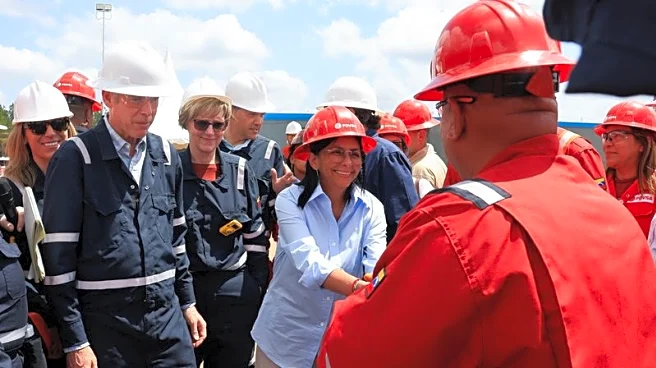What's Happening?
Ghana's Lands and Natural Resources Minister, Armah-Kofi Buah, has addressed concerns regarding the investment climate in Ghana amid a dispute involving Azumah Resources. The dispute has delayed the development of the Black Volta gold project, a significant build-ready gold development. Speaking at the Africa Down Under conference, Buah emphasized Ghana's stability as a mining jurisdiction and highlighted the presence of major international companies operating successfully in the country. Despite the ongoing litigation with local contractor Engineers & Planners, Buah assured that the dispute is isolated and being addressed. The situation has raised concerns about policy shifts and legal uncertainties affecting investor confidence.
Why It's Important?
The dispute involving Azumah Resources highlights the challenges faced by African governments in balancing local participation with maintaining a stable regulatory environment for international investors. Ghana's approach to maximizing local benefits through policy changes, such as requiring mines to outsource operations to majority Ghanaian-owned contractors, has created uncertainty among investors. The stalled Black Volta project, which has the potential to generate significant economic benefits, underscores the impact of legal and policy shifts on investment appetite. Resolving such disputes is crucial for maintaining Ghana's reputation as a preferred mining destination and ensuring continued foreign investment.
Beyond the Headlines
The situation in Ghana reflects a broader trend of resource nationalism across West Africa, where governments are increasingly focusing on regulatory control and local content. While these policies aim to maximize local benefits, they also pose challenges in maintaining investor confidence and ensuring stable economic growth. The balance between local participation and international investment is a critical issue that could influence future mining policies in the region. Ghana's handling of the Azumah dispute will be closely watched as a case study in managing resource nationalism while attracting foreign investment.










